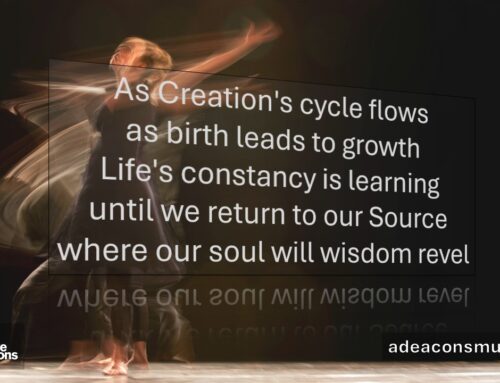It’s funny how we anticipate that rising dawn sun 2000-and-change-years later: an event/time/story/experience that Christians call Easter. This Lent – the season before Easter – has been a difficult, sad and weary making journey. We have seen violence used with intentional precision, experienced our own denomination wrestle with the reality of orthodoxy and its inherent temptations, and heard xenophobia and misogyny positioned as political platforms by some of the so called leaders of the ‘free world.” It has, indeed, been a shadowed season and the longed for arrival of light’s piercing clarity has been a blessing.
As I prepared for this week’s blog, knowing it might wander from one disconnected note to another, I was also aware that I recently returned from an Intercultural Ministry gathering, in which Sisters and Brothers from throughout The United Church of Canada gathered. In our time of play and pray, learning and sharing, there was the undercurrent of how to challenge privilege and name that racism remains embedded in our structures, regardless of the narrative to which we long to cleave.
- How do those who so often carry difficult messages of change, look, sound and behave differently than those to whom such missives such sharing is intended?
- How do we help a church, which is grounded in Anglo-Saxon privilege that sees abundance as deficit, hear the Spirit’s call?
I have also wondered how tired those first Disciples must have been. Perhaps they were even irritated on that first shock-inducing resurrection Easter-morn, when all they wanted to do was hide and grieve. Men and women, most likely assuming leadership roles for which their birth station should have denied them, whose dear Rabbuni had been cruelly – hell inhumanely – tortured and executed. Yet upon death’s doorstep they were being summoned by invitation to bear Light into the very Empire and world from which they had and would (are and will) suffer …
As this musing moved to another note, I also continue(d) to hear a repeating song of mercy. A word for which I have always imagined that it is one of the few responses specific to those with privilege. We – the bearers of this institution – who can choose to dress in the garment of white are often resistant, perhaps even intentionally oblivious, to the power we actually have. Like Joseph of Arimathea, when he chose to use his authority to request the body of Jesus of Pilate, we must confront that letting go of our assumed influence often begins with one step: mercy.
- Whether we hold onto the institutional structures and its explicit and implicit underpinnings will be telling to the extent to which we live into this theology of diversity toward which this denomination has been aimed for almost 100 years.
- When those whom we have colonised, exploited, and dehumanised strike back at us, how we respond will be the plumb line upon which reconciliation is gauged as either an intentional commitment or simply lip service.
Easter mercy: for those who have and do benefit from the systems in which we live, it is a choice. One difficult and challenging. It is in the letting go, the emptying of the ego, that – perhaps – we begin to see ourselves for who we truly are: interconnected and beautiful. We begin to see – perhaps – that the illusions that separate us are infinitesimally inferior to the abundant rich threads that not only connect us to one another, but that speak to a Creation in which miracles happen in every moment if we but have eyes to see them and ears to listen to the harmony that is everywhere and everywhen …








Your reflections are most welcome!